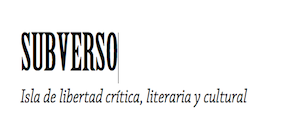My initial background and professional training was in Spanish language teaching through the communicative approach. This came into practice during my graduate years at Columbia University, in which I taught all levels of Spanish language. Then, for the last four years, as Hispanic Poetry assistant professor at Yale University, I have had the opportunity to expand this experience to culture, literature, and poetry courses. It was within this context that I initially stepped into the lecturing model, realizing soon the need to reintegrate the skills and dynamism that I had learned through language teaching. Though the materials and nature of discussions obviously vary, I have managed to maintain the classroom as a space for shared discovery, one that provides the student with socio-historical insights and critical tools, while at the same fostering self-development in order to incite further learning. In this sense, I can say that over the course of the last four years, I have attempted to bring a more compromised and experimental approach to teaching. Mostly in my poetry seminars for undergraduates, I have found essential to rotate the discussion from the accumulation and discussion of previously existing knowledge to an effort to go beyond the academic routines and rhetorical intelligence that often lessen our chances to remain and insist in the precise proposals sometimes contained in poetry, literature, and art.
Still, whether in a basic Spanish Language course, or a poetry seminar/workshop, immersion is the key to my teaching dynamic. While at Columbia, my interest in communication skills led me to create a pronunciation and intonation method that reinforces the students’ speaking and listening capabilities, with the aim of bringing them closer to a native speaker dynamic. As for my work over the past years, my effort has been directed towards developing tools that can deepen immersion into specific cultural, literary and poetic contexts. This stems from my conviction that culture is an effective device for thought and sensitivity, one that possesses a particular capacity to create an alertness and an openness that link our customary use of language to the discovery of its creative force.

1 comment
Best Lines of Latino Poetry | American Poetry Today says:
Abr 27, 2013
[…] Ernesto Estrella | subverso | subverso […]